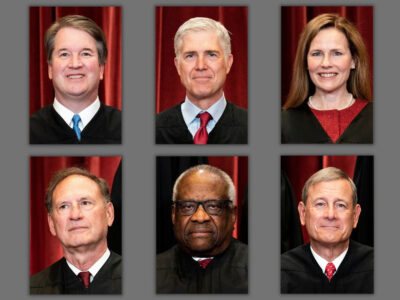Supreme Court Declares Juries Responsible for Assessing Criminal Fines in Environmental Enforcement Cases
The Supreme Court on Thursday handed down its third and final environmental law decision of its current Term. (The case, Southern Union v. United States, is also significant for being the first criminal environmental enforcement case in the Court’s history) In a 6-3 decision, the justices ruled that criminal penalties sought by federal prosecutors in a toxic spill case must be assessed by a jury, rather than the trial judge.
I detailed the issues raised by Southern Union in a previous post, published when the justices granted review of the case late last year. Briefly, however, the case involves a criminal prosecution brought by the Justice Department against Southern Union under the Resource Conservation and Recovery Act (RCRA), for the unpermitted storage–and subsequent spill–of mercury in a Providence, Rhode Island warehouse owned and operated by a Southern Union subsidiary. After a federal jury found the company guilty of violating RCRA, the district judge imposed criminal penalties of $6 million, and assessed an additional, $12 million “community service obligation” against the company. Southern Union appealed, claiming that under the Supreme Court’s Apprendi v. New Jersey decision and the Sixth Amendment to the U.S. Constitution, assessment of criminal fines is properly a jury function. That is, the jury, rather than the judge, is required to assess and impose criminal penalties under the Sixth Amendment. The First Circuit Court of Appeals upheld the conviction and fines, holding that while Apprendi requires that the death penalty and prison sentences be decided and imposed by a jury, criminal fines could be assessed by the judge.
In a 6-3 decision authored by Justice Sotomayor, the Supreme Court reversed. There is no principled basis under Apprendi, declared the majority, for treating criminal fines differently from the imposition of imprisonment or the death penalty when it comes to the judge/jury function. The Court therefore reversed the lower court ruling, and remanded the matter for re-assessment of the criminal fines and penalties–this time, presumably, by a federal jury.
Southern Union represents a setback for federal prosecutors, who generally prefer to argue criminal penalties in environmental cases before judges rather than juries. Federal judges, so the theory goes, are better able to understand complex theories and arguments over criminal penalty assessments, and less susceptible to subjective arguments from defense counsel that might sway a jury to reduce or dispense with criminal penalties in individual cases.
The monetary stakes are significant, particularly in egregious cases involving mendacious conduct by criminal defendants, substantial environmental damage, or both. A case in point: the 2010 Deepwater Horizon oil spill in the Gulf of Mexico. It’s widely believed that it’s only a matter of time before federal prosecutors file criminal charges against the corporations and, perhaps, corporate officials deemed responsible for the worst oil spill in American history. As Southern Union makes clear, the role of the jury in such federal prosecutions of environmental crimes now takes on heightened significance.








Reader Comments